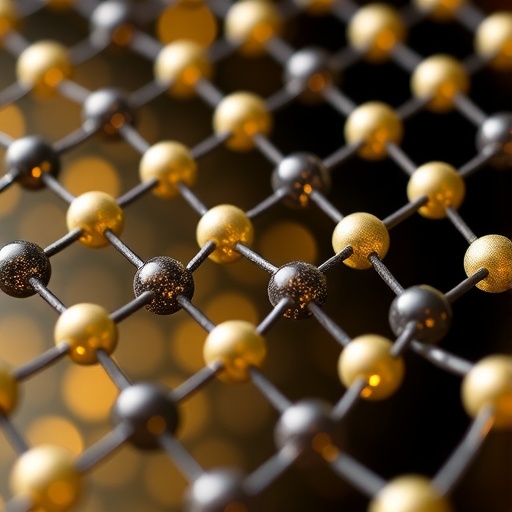Innovative breakthroughs in energy storage are crucial for addressing the rising energy demands and environmental concerns of our modern society. Recent advancements in the field of lithium-sulfur (Li-S) batteries present exciting opportunities for the development of more efficient and reliable energy storage solutions. A new study conducted by Aslfattahi et al. explores the potential of a composite material comprising graphene nanoplates, molybdenum disulfide (MoS₂), and cobalt disulfide (CoS₂) to enhance the electrochemical stability of Li-S batteries. This pioneering research stands to transform how we utilize rechargeable batteries in various applications, from electric vehicles to portable electronics.
As the demand for efficient energy storage solutions continues to escalate, lithium-sulfur batteries have emerged as a promising alternative to conventional lithium-ion batteries. The appeal of Li-S batteries lies in their high theoretical energy density, which is significantly higher than that of their lithium-ion counterparts. However, issues such as polysulfide dissolution and the slow kinetics of charge and discharge processes have hindered their practical applications. The work presented by Aslfattahi and his team addresses these challenges head-on by proposing a new composite material that incorporates graphene nanoplates, MoS₂, and CoS₂.
The researchers employed a combination of simulation, density functional theory (DFT) calculations, and experimental investigations to explore the properties of their proposed material. Through DFT calculations, they were able to model the electronic structures and predict the interaction between the components at the atomic level. This is a critical step, as understanding these interactions can inform the design of materials that enhance electrochemical performance. The simulations provided insights that guided the synthesis of the composite material, which was subsequently characterized through various techniques.
One of the key concerns with traditional Li-S batteries is their inherent instability over extended cycling. The combination of graphene with MoS₂ and CoS₂ has shown promise in enhancing the mechanical and electrochemical stability of the cathode material. The unique structure of graphene offers a conductive framework, enabling efficient charge transfer within the battery. Meanwhile, the incorporation of MoS₂ and CoS₂ serves to trap polysulfides and mitigate their dissolution, a compelling solution to one of the largest obstacles facing Li-S technology.
The researchers meticulously conducted a series of electrochemical tests to evaluate the performance of the newly developed composite material in lithium-sulfur batteries. Through these experiments, they were able to measure capacity retention, cycle stability, and charge-discharge rates. The impressive results indicated that the graphene nanoplates@MoS₂@CoS




